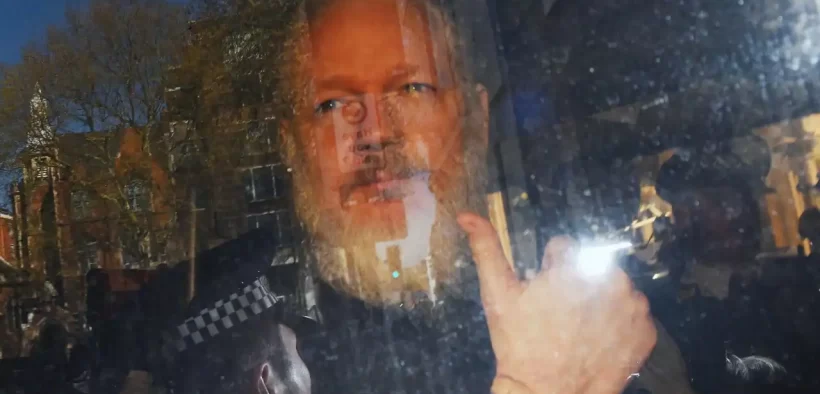The Australian government will not make any representations to the British home secretary after a United Kingdom court approved the extradition of whistleblower Julian Assange to the United States.
Australian government will not intervene over Wikileaks founder Julian Assange’s extradition to US

WikiLeaks founder Julian Assange arrives at Westminster Magistrates Court in London on 11 April 2019. Source: AAP
“It, of course, has appeal processes built into it as well. This is the legal system upon which our own has been built on and established and we have confidence in the process.”
Labor’s foreign affairs spokeswoman Penny Wong says it’s ultimately a decision for the UK home secretary.
“I do understand why not only Mr Assange’s personal supporters but many Australians more generally are worried about this. It has dragged on a long time,” she told the ABC.
“As an Australian citizen, he is entitled to consular assistance. We also expect the government to keep seeking assurances from both the UK and US that he’s treated fairly and humanely.”
But Senator Wong stopped short of saying a Labor government would make specific representations about the case.
“Consular matters are regularly raised with counterparts, they are regularly raised and this one would be no different,” she said.
The development comes 10 days after Mr Assange surpassed the three-year anniversary of his arrest.
The 50-year-old Australian was dragged from London’s Ecuador embassy on April 11 in 2019 to face extradition to the United States on espionage charges over WikiLeaks’ release of confidential US military records and diplomatic cables.
Deputy Prime Minister Barnaby Joyce has previously called for an end to Mr Assange’s extradition.
Mr Joyce said Mr Assange didn’t steal secret US files but only published them, which did not breach any Australian laws at the time, and he was not in the US when leaks were put online.











